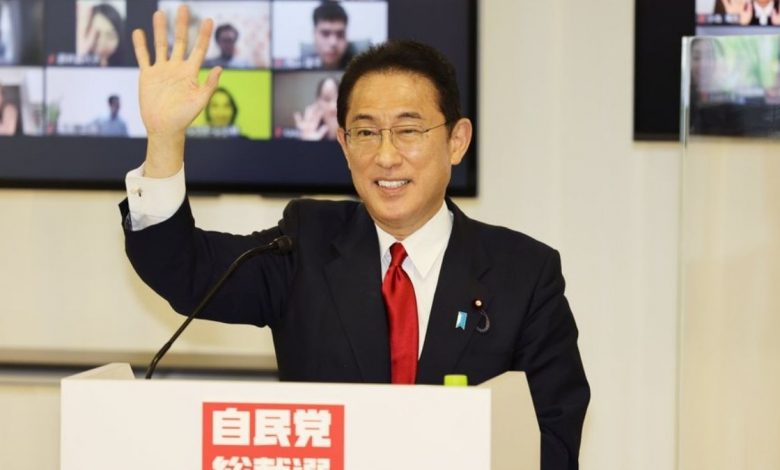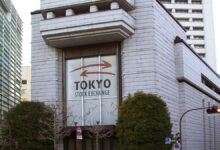Japan’s former foreign minister Fumio Kishida is set to become the new PM

The election of new Japanese PM, Fumio Kishida has led critics to raise eyebrows at Japan’s revolving-door-leadership policy.
On Monday, the former Japanese foreign minister Fumio Kishida will become the next PM replacing Yoshihide Suga, who decided not to contest the election due to approval ratings hitting an all-time low.
The not-so-popular Kishida had won the ruling Liberal Democratic Party’s (LDP) leadership vote on Wednesday, assuring his PM chair even if both the houses failed to zero down on a single name. In Japan, if both houses have failed to arrive at a consensus, the lower house takes the final call. The ruling LDP party enjoys a handsome majority in the lower house.
But pandemic induced stagnant Japanese economy and increased Chinese political manoeuvring along with a spike in natural disasters due to climate change will make Fumio Kishida’s journey a tight ropewalk, if not difficult.
Who is Fumio Kishida
Fumio Kishida followed his father and grandfather’s footstep and was elected to the House of Representatives for the first time in the 1993 general election, representing the Hiroshima 1st district.
He then served as LDP’s chief policymaker and as foreign minister for five years till 2017. His role in negotiating a deal with Russia and South Korea added a golden feather to his political career. Supporter of banning nuclear weapons, he brought former US President Barack Obama to Hiroshima in 2016.
Fumio Kishida enjoys the support of the otherwise old men-dominated LDP, but his restrained presence in the public domain has led critics to question his mass popularity. His election to the PM chair has also sparked controversy on the return to the revolving-door-leadership policy.
With lower voter turnout and weak political opposition, LDP has selected a predictable name in the wake of insulated electoral pressure. But as history proves it, a choice made on the likes of the representatives that is devoid of their voices has made the political parties weaker. It will be on Kishida now to revive the slow and staggering economy, which is brutally battered with pandemic restrictions.
Kishida’s proposed policies
Kishida’s proposed policies and his stance on matters that shape the election mandate like climate change and alternative solutions, economy, covid vaccine, and more remain scattered.
The base of his economic policy is to reduce the income gap. He had mentioned reducing the pay parity among the rich and the poor during his victory speech on Wednesday. He is also against hiking the Japanese taxes immediately.
Not much change is expected in Japanese foreign policy. Selecting a face that is not hesitant to spend an additional 1% of the GDP in defence and security, speak about the Japanese solution for their Chinese problems loud and clear.
Mostly due to the above-mentioned reason, Japan and the US ties will grow stronger. It is reported that the Biden administration is looking to accelerate the process of fostering strong ties between the two nations in a bid to counter Chinese influence in the Pacific region. This newly build relation will help India. It is also expected Indian government to forge stronger ties with their Japanese counterpart to oppose Chinese dominance in the neighbourhood.
Fumio Kishida policies on climate and covid-19 response
Over time Japan has become more prone to natural disasters due to climatic change. Suga’s incapacity in dealing the climatic change and advocate renewable reasons cost him his PM chair. To mitigate the same, Kishida has announced to open up more options for renewable energy.
In doing so, he vetoed Fukushima Nuclear plant that severely damaged the public trust in nuclear energy, after the 2011 disaster. On the other hand, his step is in line with Japan’s continuous effort to become carbon-neutral by 2050
Kishida might be immune to the vaccine rollout policies during his initial tenure as around 60% of the population is inculcated. He has proposed to give the government agencies a commanding role in vaccine rollout amid the criticism of too many ministries involved in the process.
Kishida policies don’t reflect people voices
Fumio Kishida’s policies are not a direct reflection of people’s voices. This might be a rewarding effect of the Japanese revolving-door-PM policy.
He did not get elected to the chair through the general election. He was elected as the PM by his party men.
Also, LDP is currently enjoying the political capsule of winning the polls due to weak opposition. In this situation, it is unlikely to expect any immediate change in Kishida’s stance. For example, he called himself a supporter of the nuclear weapons ban. But on the other hand, he vetoed a nuclear plant that has severely affected the public trust around a decade ago, even if as an option for alternative energy. An otherwise dovish politician, Kishida expressed his hawkish stance on China.
Despite toning down his support for overhauling a law mandating married couples to share a surname for legal purposes, he declared that he would not endorse same-sex marriage. This step stoned his views are aligned with the party’s conservative elite, which stands in contrast to the current public sentiment.
